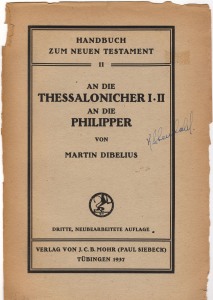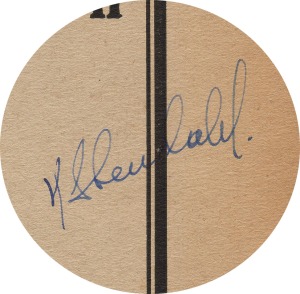Well I think it’s appropriate to answer the question I am asked over 100 times at SBL every year. It starts with someone looking at my ID badge. Then a look of shock appears on their face and they ask, “uhh, does UCLA even have an NT program?” The answer is, why yes we do and a pretty good one if you ask me. Now that world famous blogger Pat McCullough has joined the program this year I can only hope that UCLA becomes more well known for its program. Since no one has heard of our program I will take the time today to tell you all about it.
Like any program our NT program has its plusses and minuses. First, we are in the History department which is among the top 10 in the nation. This means when you take a class from any professor in the department you know they are world class. We are given the option of tailoring our program to suit our interests and needs, while this is an amazing feature it can be overwhelming in one’s first quarter. One can take classes in a wide variety of fields such as: Roman History, Greek History, Late Antiquity, Papyrology, Paleography, Hebrew, 2nd Temple Judaism, and many others. Not only does UCLA have a remarkable History department but we are encouraged to take classes outside the department in Classics, NELC (Our excellent Near Eastern Languages department), and many other top ranked departments. Do you want to learn a language well UCLA has it. I’m not sure if Ugaritic or Akkadian will help your NT studies but if it will it is available.
In addition to a wide variety of professors our students have a wide variety of interests such as: Anthropology, Magic, Manliness, Apocalytpicism, Paul of Tarsus, letter writing, and rhetoric. Nothing is more interesting than talking to this group of students about a passage you find interesting, everyone has their own take on it.
One of the most rewarding aspects of my time at UCLA has been the ample teaching experience I’ve had. During one’s first year at UCLA normally one will not receive a TAship and thus, in order to receive a tution fee remission one normally is a grader. I graded for the 186 series which includes: Christian Origins and the Historical Jesus. During one’s second year at UCLA often one is awarded a TAship. Now this is both a plus and a minus. On the plus side it is excellent teaching experience. However, there are no NT courses offered that qualify for a TAship which leaves choices which can be somewhat unnverving (I always cringed ranking courses like African history 4th on my list, though admittedly the course would have provided me a lot of useful information). I have been a TA for Western Civ: Pre-History – 800 CE, World History 400 BCE – 400 CE, Western Civ: 800-1600, and Introduction to World Religions. Being a TA for such a wide range of courses can be construed as either a positive or a negative. On the negative side, it is a lot of work to prepare a discussion section for a field in which you have limited knowledge. However, on the plus side your breadth of knowledge is expanded substantially. Finally, if you are one of the lucky few (as I am this year) you will be awarded the opprotunity to design and teach your own class. This year I designed and am teaching my own course titled: Paul, the New Testament, and Letter Writing. This has been a tremendous experience!
In order to provide you with an example of what a NT program can look like at UCLA, here is a list of some of the courses I have taken. Bear in mind this list varies substantially for each student in our program.
Christian Origins, Historical Jesus, Paul of Tarsus, Spirtuality and Sexuality in the New Testament, Epictetus, Apostolic Fathers, Greek Papyrology, Greek Paleography, Roman History: Caesar to Constantine andthe Dead Sea Scrolls (with a focus on the liturgical documents).
Finally it should be noted that our program only has one scholar who focuses on the New Testament but he is excellent. Dr. S. Scott Bartchy is well versed in a wide variety of topics and in addition to being a top notch scholar, he is an amazing mentor. I have never encountered a professor who cares so much for his students and is so generous with his time.
Well that about wraps up my take on the New Testament program at UCLA. So this year when you see me at SBL perhaps you will be one of the few people who does not ask me the standard question, “What, UCLA has a New Testament Program?!?!??” Instead you can ask the second question, “So how far are you on your dissertation?”


